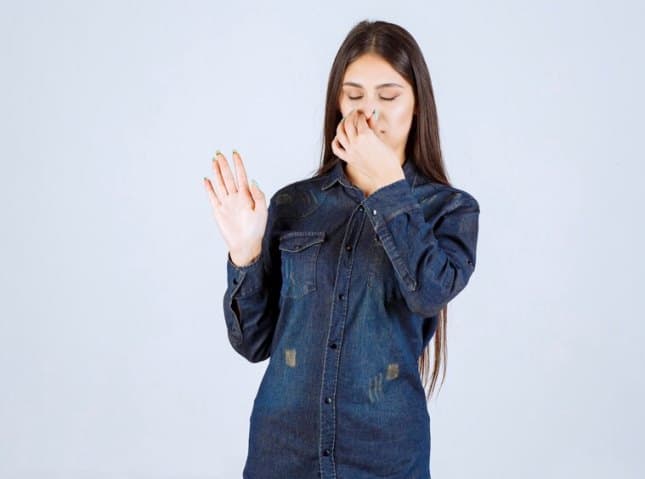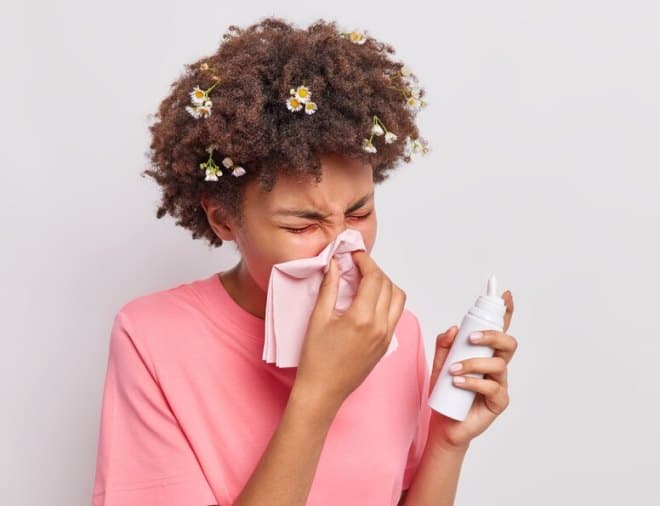How to Stop Smelling Bleach in My Nose: Tips and Tricks
If you have recently cleaned your home with bleach or have been around a strong bleach smell, you may experience a lingering bleach scent in your nose. This can be unpleasant and even cause discomfort.
Fortunately, there are several ways to get rid of the bleach smell in your nose. In this article, we will explore some tips and tricks on how to stop smelling bleach in your nose.
Table of Contents
Understanding the Science of Bleach Smell
Bleach, also known as sodium hypochlorite, is a powerful chemical used for cleaning and disinfecting surfaces. When bleach comes into contact with organic matter such as skin, hair, and bodily fluids, it produces chloramines, which are responsible for the strong bleach smell. The smell can linger in your nose, throat, and lungs, causing discomfort and even irritation.
Read: How to Numb Your Nose
How to Stop Smelling Bleach in My Nose
If you’ve accidentally inhaled bleach fumes, the strong odor can be unpleasant and overwhelming. To stop smelling bleach in your nose, you can try below procedure:
Ventilation
The first and most important step in getting rid of the bleach smell in your nose is to ventilate the area. Open windows and doors to allow fresh air to circulate and help dilute the bleach smell.
Turn on fans or use air purifiers to help remove any lingering bleach particles from the air.
Stay Hydrated
Drinking water or other fluids can help to flush out your nasal passages and remove any residual bleach particles. This can help to reduce the strength of the bleach smell in your nose.
Rinse Your Nose
Rinsing your nose with saline solution can help to remove any bleach particles that may be lingering in your nasal passages. You can use a neti pot or a nasal spray to rinse your nose with saline solution.
Use Essential Oils
Certain essential oils such as lavender, peppermint, and eucalyptus have natural antiseptic and deodorizing properties that can help to neutralize the bleach smell in your nose.
You can add a few drops of essential oil to a diffuser or a bowl of hot water and inhale the steam.
Try Vinegar
Vinegar is an effective natural cleaner and deodorizer that can help to remove the bleach smell in your nose. You can add a few tablespoons of vinegar to a bowl of hot water and inhale the steam.
Avoid Strong Smells
Avoid exposing yourself to strong smells such as perfumes, colognes, and cigarette smoke, as these can exacerbate the bleach smell in your nose.
Take a Shower
Taking a shower can help to remove any residual bleach particles from your skin and hair, reducing the strength of the bleach smell in your nose.
Wait it Out
In most cases, the bleach smell in your nose will dissipate on its own within a few hours or days. If the smell persists for an extended period of time, you may want to consult a doctor.
Use a Mask
If you are cleaning with bleach or in an area with a strong bleach smell, wearing a mask can help to reduce your exposure to bleach particles and minimize the strength of the bleach smell in your nose.
FAQS
How long does the bleach smell last in the nose?
The bleach smell can last for a few hours or up to several days, depending on the concentration of bleach and your sensitivity to the smell.
Can smelling bleach be harmful?
Inhaling bleach can be harmful and even toxic. It can irritate your nose, throat, and lungs, causing respiratory problems, headaches, and nausea. Always use caution when working with bleach and avoid prolonged exposure.
What should I do if I experience discomfort or irritation from smelling bleach?
If you experience discomfort or irritation from smelling bleach, seek medical attention immediately. It is important to take precautions when working with bleach to avoid any harmful effects.
Final Word
In conclusion, getting rid of the bleach smell in your nose can be a challenge, but there are several tips and tricks you can try to neutralize the smell. Ventilating the area, staying hydrated, rinsing your nose, using essential oils or vinegar, avoiding strong smells, taking a shower, waiting it out, and using a mask are all effective strategies. Remember to always use caution when working with bleach and follow the manufacturer’s instructions.

